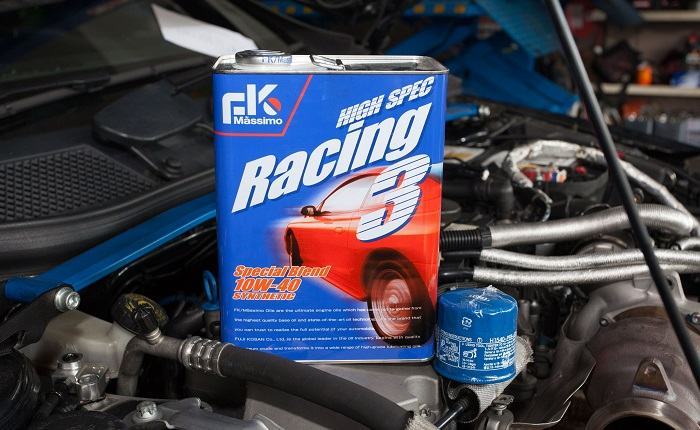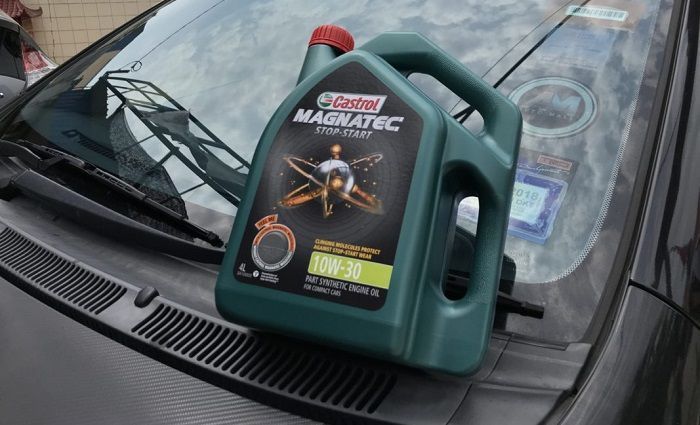by Joshua Thomas
The 10W30 and 10W40 are two of the most common car engine oil viscosities available in the market. While the first part of the numbering suggests they are quite similar, the second shows the oils are not entirely the same, explaining why many motorists might have difficulties deciding which one to use.
In this article, we look at the elements that set the two apart and typical uses to help motorists decide what to have on their engines.
Contents

From their ratings, it is clear both 10W30 and 10W40 are multi-grade oils that can work well in cold and hot temperatures.
The formula means the two oils have a viscosity of 10 in winter. Therefore, they have the same flow rate in cold weather, and hence a similar performance.
The point of departure between the oil types is the hot temperature rating. 10W30 has a viscosity of 30 at normal operating temperature, while for the 10W40, it is 40.

The 10W30 and 10W40 are pretty much the same for cold weather use, given they have the same rating. The flow rate is the same, and hence the oils offer similar protection for the engine parts and have the same effect on startup in the winter.
However, when it comes to the hot weather performance, the oils differ, given they have different ratings. Here the thicker 10W40 maintains a better flow at higher temperatures making it more ideal for scorching temperatures such as in the summer months. Also, the 10W40 maintains better viscosity when hot to protect the bearings and piston skirts.
For the operating temperature range, the 10W30 works best for temperatures between -30°C and 35°C. On the other hand, 10W40 does a perfect job lubricating the engine and ensuring excellent startups between -30°C and 40°C, making it a slightly more versatile oil, given the broader operating temperature range.

Overall, if you live in cold weather areas, the 10W30 is the best option for you. In such a climate, the engine oil only has to deal with heat from the engine and not the environment. This oil is also ideal for reducing excessive engine temperatures and drag as the engine heats up in the cold weather.
The 10W30 is a more common oil than the 10W40. Hence, it is widely available and cheaper. Therefore, provided you will not be driving in sweltering summer temperatures, this is the best option if you prefer something more economical to use.
For motorists who live in hotter climate regions and those looking for engine oil specifically for use in the hot summer months, the 10W40 is the ideal choice. In such situations, the oil has to deal with heat from both the engine and the environment.
While you can still use 10W30 in hot weather, it thins out faster than the 10W40 as the temperatures rise, meaning it cannot adequately lubricate the engine components. 10W40 provides both adequate lubrication and protects metal components at high temperatures.
Typically the right engine oil for your vehicle depends on the manufacturer's recommendation. Sometimes, this information is not available, or you might find the recommended type not ideal for you. Hence, the need to understand the difference between 10W30 and 10W40.
That said, the only things making these oils different is their high temperature viscosity and operating temperatures. The 10W40 is a thicker oil at hot temperatures and also has a relatively wider operating range.
Therefore, the 10W40 is an ideal choice for those that drive it hot weather a lot. Also, it is great for vehicles with engines that run at higher temperatures. 10W30, on the other hand, is perfect for colder weather as it helps reduce drag as the engine warms up.
 |
 |
 |
 |

About Joshua Thomas
Joshua Thomas just simply loves cars and willing to work on them whenever there's chance... sometimes for free.
He started CarCareTotal back in 2017 from the advices of total strangers who witnessed his amazing skills in car repairs here and there.
His goal with this creation is to help car owners better learn how to maintain and repair their cars; as such, the site would cover alot of areas: troubleshooting, product recommendations, tips & tricks.
Joshua received Bachelor of Science in Mechanical Engineering at San Diego State University.